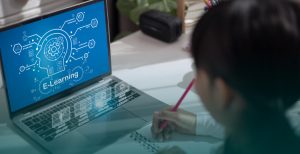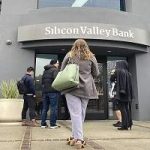The World Bank Group is the world’s largest education financier, with initiatives in over 80 countries aimed at providing quality education and lifelong learning opportunities for all.
As part of its larger education work, the WBG collaborates with governments and organisations around the world to support innovative projects, timely research, and knowledge-sharing activities about the effective and appropriate use of information and communication technologies (ICTs) in education systems (“EdTech”) to strengthen learning and contribute to poverty reduction around the world.

The World Bank calculated the levels of “Learning Poverty” around the world by counting the number of 10-year-old children who are unable to read and comprehend a short tale by the end of primary school. In low- and middle-income nations, “learning poverty” is 53%, whereas the poorest countries have an average of 80%. COVID-19 caused temporary school closures in 180+ nations, affecting nearly 85% of pupils globally. While most countries are working to reopen schools, there are still occasional closures and use of hybrid learning.
Reflecting on COVID Response and Remote Learning:
Technology played and continues to play an important role in providing education to pupils outside of school. Fortunately, all countries were able to implement remote learning technologies through a combination of television, radio, online, and mobile platforms. However, many children in low-income countries did not participate in remote learning, with around one-third of low-income countries claiming that 50% of children were not reached in a joint UNESCO-UNICEF-World Bank study. The pandemic has also caused severe loss of learning. School closures and limited access to distant learning suggest that Learning Poverty is projected to worsen from 53% to 63%, particularly in low-income nations, unless remedial initiatives are implemented.
The crisis has revealed inequities in digital access and demonstrated that ‘business as usual’ will not work to provide education to all students. To close the digital divide in education and harness the power of technology to accelerate learning, reduce learning poverty, and support skill development, a focus must be placed on bridging gaps in: i) digital infrastructure (connectivity, devices, and software); ii) human infrastructure (teacher capacity, student skills, and parental support); and iii) logistical and administrative systems for deploying and maintaining tech architecture.
Educational systems must change. Given this backdrop, the World Bank’s EdTech team has identified five crucial questions to address in the short to medium term. These questions highlight the necessity to re-imagine.
How can countries leverage EdTech investments to develop resilient hybrid learning systems?
This question necessitates both reflecting on the lessons learnt from the adoption of remote learning during COVID and solving the new digital infrastructure access gap. The World Bank is collaborating with governments to develop ways to address concerns such as affordable connection, device procurement, cloud solutions, and multimodal education delivery. Furthermore, governments’ expenditures in remote learning could be exploited to meet current educational difficulties. Many governments are now considering remote learning as both an insurance policy against future disasters, particularly in a world suffering climate change, and a means of reaching out to schoolchildren and providing a lifetime education to all inhabitants.
How can countries use technology to restore learning lost, better utilise data, and personalise learning?
The World Bank is expanding its research on adaptive learning systems, remote assessment, and how education systems may better employ learning analytics to personalise learning. A significant portion of this work will be spent designing a new approach for Education Management Information Systems (EMIS 2.0) to enable more effective data utilisation.
What are the new roles and abilities that instructors will need in hybrid learning systems, and how can technology be used to facilitate more human connections?
The World Bank is looking into teacher competency frameworks, teacher networks, and communities of innovative teachers to help countries empower teachers. Even in today’s technologically advanced world, teachers remain fundamental to learning. There is mounting evidence that bypassing teachers and not engaging them with technology does not help student learning.
How can countries use open technology ecosystems to increase access to high-quality content and learning opportunities?
The World Bank will work with partners to establish open global public goods and methods for engaging the wide ecosystem of innovators in client countries to support the design and development of innovative educational content and curricula. The team will form communities of practice around EdTech innovation hubs and creative talent to create new open educational libraries. Climate change will be a primary feature of the content.
How can countries use open technology ecosystems to increase access to high-quality content and learning opportunities?
The World Bank will work with partners to establish open global public goods and methods for engaging the wide ecosystem of innovators in client countries to support the design and development of innovative educational content and curricula. The team will form communities of practice around EdTech innovation hubs and creative talent to create new open educational libraries. Climate change will be a primary feature of the content.
How can technology help build, measure, and accredit future skills?
The World Bank will assist countries in defining 21st century competencies in students and teachers; investigating ways to more effectively measure and accredit these skills in collaboration with external partners; and sharing knowledge and experience in communities of practice on difficult-to-measure skills and blockchain for education.





